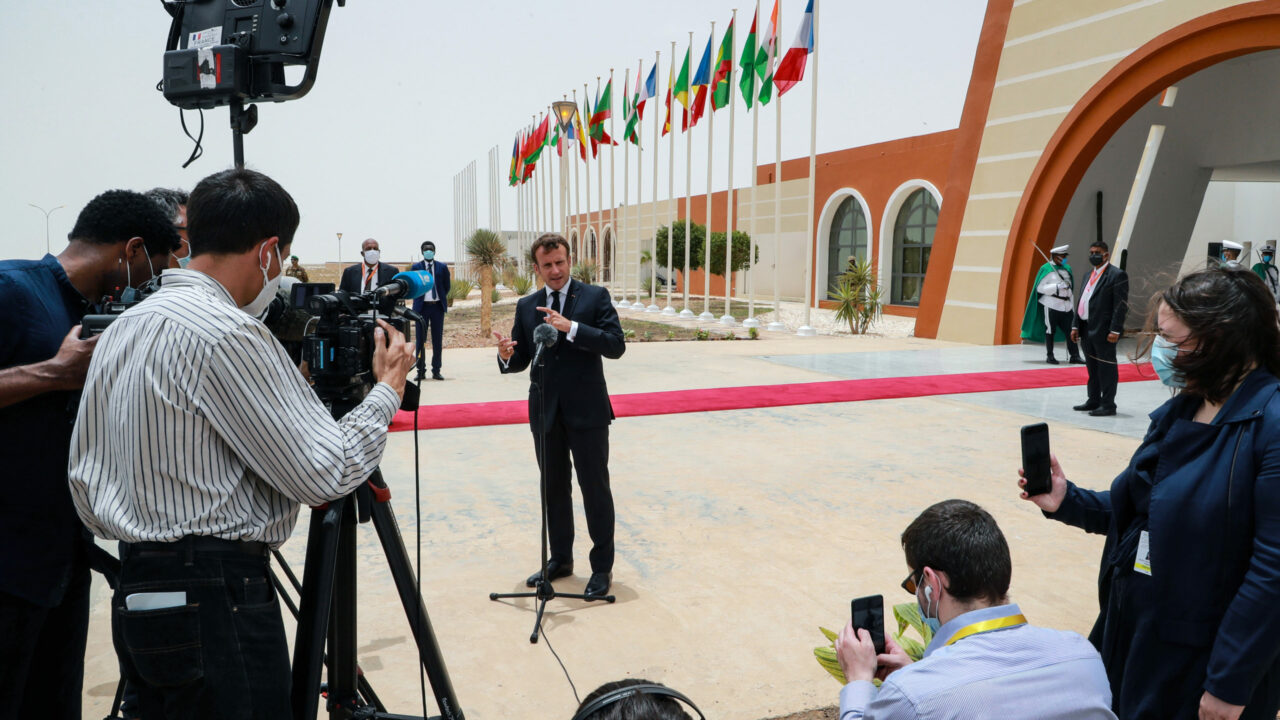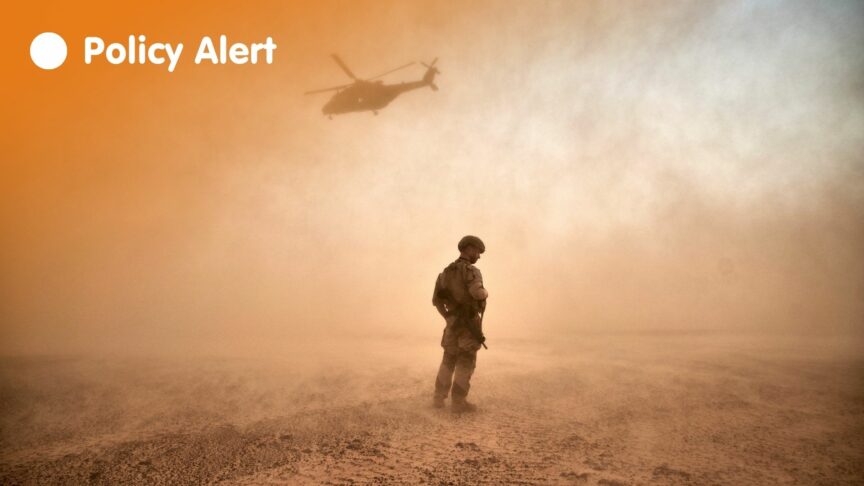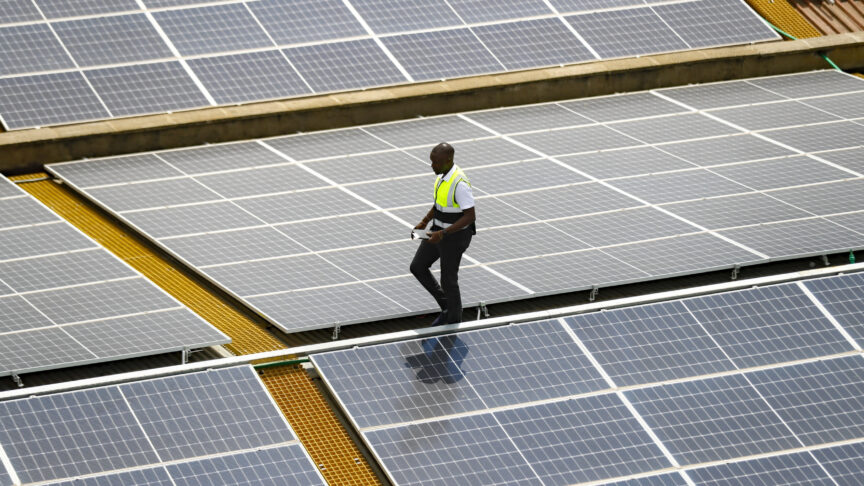How France and the US can work to stabilise the Sahel
After the indifference of the Trump years, the Biden administration should broaden and deepen its cooperation with France in the Sahel
The severity of the situation in the Sahel has been brought home once more. This week an explosion of violence against soldiers and civilians in Mali and Niger provided a stark reminder of the great risks the Sahel faces. Yet only last month an air of triumphalism reigned at a summit held by the international community and the nations that make up the G5 Sahel grouping, which seeks to bring stability to the region.
As the militant threat continues to spread, players such as France and the European Union – among the main international security and development actors in the Sahel – need more help. But the support they need is not just in terms of military or financial cooperation; instead they also need political assistance, particularly as regional countries increasingly favour negotiations with armed groups, including some jihadist movements.
The United States can help provide this support, and should target it especially on the difficult issues of stabilisation and political reform. Such assistance would help build on an already strong security partnership between France and the US, deepening the transatlantic partnership while also helping push France, the EU, and their Sahelian partners to pursue difficult but necessary governance-focused measures in the region.
Making up for past neglect
Under the Trump administration, transatlantic cooperation on the Sahel was one of the few areas of multilateral cooperation that escaped largely unscathed, and may have even grown stronger. Through concerted efforts borne first of their experience together in Afghanistan, French and American forces operate increasingly well together, with France now considered one of the US’s most important and reliable security partners. In turn, American support in terms of supplies, transport, and intelligence is essential to French operations in the Sahel, both in Operation Barkhane and the Special Operations Task Force Sabre. And, despite threats from the Trump administration to cut US presence in the Sahel, the relatively small cost of the assistance – around $45m per year – and the relative indifference the former president had for Africa meant the support could largely continue unabated. French leaders have also repeatedly praised American security cooperation in the Sahel, which has played an important role in the elimination of jihadist leaders and in ongoing French and G5 operations. The US also sits as part of the Comité de Suivi de l’Accord d’Alger, alongside other representatives of the international community.
That said, under Trump higher-level support for anything beyond security initiatives in the region remained largely absent. During that time the US was not nearly as invested in the region as its European counterparts were; as the international community held major donor conferences for initiatives like the Sahel Alliance or in support of the G5 Sahel, the US was often represented by lower-level officials than those present from other countries. On the whole, the administration did little to prioritise Africa, let alone the Sahel.
So far the Biden administration has set a different tone, not only in pushing to strengthen transatlantic ties, but also in emphasising the importance of renewing and strengthening American foreign policy in Africa, including in the Sahel. This has included positive language about seeking deeper ties to the continent, supporting African institutions, and engagement on a variety of issues beyond security policy. American support for French military operations is also relatively uncontroversial in Washington, and the region’s geopolitics favour close collaboration between Europe and the US, especially amid concern on both sides of the Atlantic about the growing influence in Africa of Russia, China, and Turkey.
An alliance that works better for everyone
Towards the end of a recent discussion with the Atlantic Council, Emmanuel Macron noted that the US and France work “hand-in-hand” in the region, and that “in the coming months, our partnership with the US in Sahel both on security but as well on development issues will be absolutely critical.” But it would be a mistake to limit any such cooperation to the fields where France thinks it most needs assistance, and where it has previously sought more support from its European partners as well.
Instead, it should also encompass trickier areas such as regional politics and thorny governance issues. Closer and more active American cooperation and participation in efforts in the Sahel, rather than just assistance to bolster counterterrorism efforts, could help accomplish several key goals. It can create greater pressure and impetus for UN Security Council support for political efforts, as well as necessary political reform and a push for longstanding goals such as the fuller implementation of the Algiers peace agreement for Mali. American experience (and lessons learned from serious mistakes) in other conflict zones can help inform these political approaches in the Sahel.
There is concern on both sides of the Atlantic about the growing influence in Africa of Russia, China, and Turkey
Additionally, in the rush to participate more actively in French-led operations like Task Force Takuba, some European officials have privately expressed concerns about being pulled too far into ostensibly “multilateral” initiatives that often remain dominated by France, or guided by the weight of French policy and influence in the region. A more active American political presence could help provide not just support, but at times a necessary counterweight to these concerns. It would also help maintain the promised focus on political solutions that is an important part of American stabilisation doctrine.
In his remarks to the Atlantic Council, Macron described strategic autonomy as a way of relieving a foreign policy burden on the US, especially in parts of the world such as Africa and the Middle East that are “neighbours” to Europe, rather than the US. But, in the Sahel, the US could relieve France not just of some of the military burden, but the political burden as well. The US could help the international community chart a much-needed new strategy in the region while continuing to deepen the Franco-American relationship.
The European Council on Foreign Relations does not take collective positions. ECFR publications only represent the views of their individual authors.



